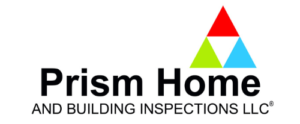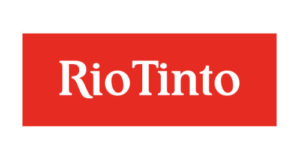
Facebook vs. Website: Which is Best for Small Business?
Small businesses face a critical decision: should they rely solely on Facebook or invest in a dedicated website? In this blog post, we’ll explore the popular question, Facebook vs. Website: Which is best for small business? I’ll examine the pros and cons of both options to help you make the right choice for your business.
Social Media Platforms: Socializing vs. Buying
Before we delve into the specifics of Facebook and websites, it’s important to understand the fundamental difference between social media platforms and websites. Social media, including Facebook, primarily serves as a newsfeed-based platform, where users come to socialize and pass the time. In contrast, search engines like Google are used for learning, problem-solving, finding opportunities, and making purchases.
In essence, users on newsfeed-based social media platforms typically lack commercial intent when browsing, making it less conducive to immediate sales. Instead, think of Facebook as a virtual cocktail party—an excellent place to create awareness about your business.
If you’ve ever tried to learn SEO or read about it, you’ll often hear SEO Professionals reference ‘search intent’. Search Intent is Google’s way of breaking out search results based on Informational, Navigational, Transactional and Commercial inquires. So while you may want to be at the party every day, the transactional value is building a website that answers transactional questions and leads transactional search to purchase from you.
Facebook Business Page: Pros and Cons
Pros:
- Quick, easy, and free to set up.
- Access to nearly 3 billion active users worldwide.
- A platform for creating engaging content and building brand awareness.
Cons:
- Limited Reach: Facebook often restricts the visibility of your business posts in users’ newsfeeds. Recent research suggests that only about 1% of your followers may see your posts organically.
- Paid Advertising: To increase your reach on Facebook, you’ll need to invest in paid advertising.
- Social Metrics: Measuring increased brand awareness on Facebook can be challenging, and engagement doesn’t necessarily translate into persuasion, influence or dollars.
Facebook’s Algorithms:
Facebook’s algorithms favor advertising, and organic reach is intentionally throttled to prevent users from seeing only business messages.
Facebook vs. Website in Google Search | Facebook vs. Website: Which is Best for Small Business?
While Facebook is a high-ranking domain and can rank well in Google results, Google typically displays only one search snippet for your Facebook page. In contrast, a business website can optimize multiple pages for search results, offering more visibility.
Business Website: Pros and Cons

Pros:
- Full control over content, design, and branding.
- Ideal for building credibility, trust, and relationships.
- Highly effective for driving conversions and sales.
- Versatile for various marketing strategies, such as content marketing, product comparisons, and lead generation.
Cons:
- Requires initial time and effort for setup and content creation.
- May involve some ongoing costs, including domain and hosting fees.
- Maintenance and updates are necessary to ensure optimal performance.
SEO | Facebook vs. Website: Which is Best for Small Business?
SEO Tools for the DIY have come along way. If you are committed, have the time and desire, you can optimize your website using a variety of plugins. For Beginners, we recommend YOAST. If you have a bit more experience, there are several advanced options to help you rank your blog or website.
SEMRUSH & AHREFS are professional level tools and come with a pricetag that is only valuable if you have a solid understanding of SEO and can use the software(s) as intended.
You can also look at small business friendly SEO programs like SEOPressor (full review here)
Optimizing a website for SEO is essential for online visibility. The good news is that platforms like WordPress make SEO easy, especially with plugins like SEOPressor . This plugin simplifies technical SEO tasks and provides recommendations for improvement, all within the WordPress editor.
SEOPressor also allows you to add schema markup to your web pages, enhancing your content’s visibility in search results.
Boosting Credibility and Conversions | Facebook vs. Website: Which is Best for Small Business?
A business website offers opportunities to enhance credibility and drive conversions:
- Professionalism: A well-designed website instills professionalism and trust in potential customers.
- Information: Websites provide essential information that customers seek, including licensing details and contact information.
- Content Marketing: You can create content that guides customers on product usage and comparisons, boosting sales.
- Lead Generation: Websites facilitate email collection for marketing campaigns, which boast a high ROI.
Small Business Budgets
For small businesses on a tight budget, creating and maintaining a website can be cost-effective. Costs may include:
- Website Design: Affordable themes are available for platforms like WordPress. Look for a well reviewed theme like AVADA (you can read a detailed review here or a detailed review of the top 5 here).
- Domain Name: Choose from various pricing plans for domain names.
- Web Hosting: Options range from monthly to annual plans, with competitive pricing. If you are on a budget, companies like Bluehost, Godaddy and SiteGround all offer economical packages. If you can afford a bit more and really want to optimize your speed and score with Google, we recommend a hosting company like Liquid Web.
- Plugins: Premium plugins offer extended functionality and support. There are many on the market, research what you’re using as using the wrong ones can have a detrimental result.
- Marketing Tools: Tools like Content At Scale, Metricool and Jungle Scout for Amazon Sellers can assist you in taking your business to the next level. Most companies offer a free trial, make sure you take advantage so you can test the software and see if there is value for you.
Exceptions
While websites are crucial for most businesses, some exceptions exist. For instance, businesses with a single, specific goal, like food trucks announcing daily locations on Twitter, might not require a website. However, even such businesses can benefit from a Google Business Profile to expand their online presence.
Bonus Tips for Small Businesses
- Use Google’s Local Services Ads: If you have a service-based business without a website, leverage Google’s Local Services Ads to generate leads while setting up your site.
- Optimize Your Google Business Profile: Make the most of your Google Business Profile to enhance your local online presence.
- Leverage Google Reviews: Use customer reviews to improve your SEO and attract more prospects.
- Explore Meta’s Marketing Products: If you plan to run marketing campaigns on platforms like Facebook and Instagram, Meta’s academy offers valuable resources.
Facebook vs. Website: Which is Best for Small Business?
In conclusion, while Facebook can help build brand awareness, an SEO-optimized website, along with a Google Business Profile, is a critical success factor for most small businesses. It allows you to target relevant search terms, rank higher in search results, and attract qualified traffic. So, consider investing in a website to ensure your business’s online growth and longevity. We offer a small business accelerator packaged designed to cover your website design, hosting, maintenance and support for the 1st year with an affordable price tag that works for most small businesses. Check out the package or contact me directly to discuss your particular needs.
MORE FROM THE PRESS:
Emotional Blueprint Branding Strategy: Lasting Impressions (everythingdigital.ca)
Visual Consistency in Branding: From Website to Marketing (everythingdigital.ca)






